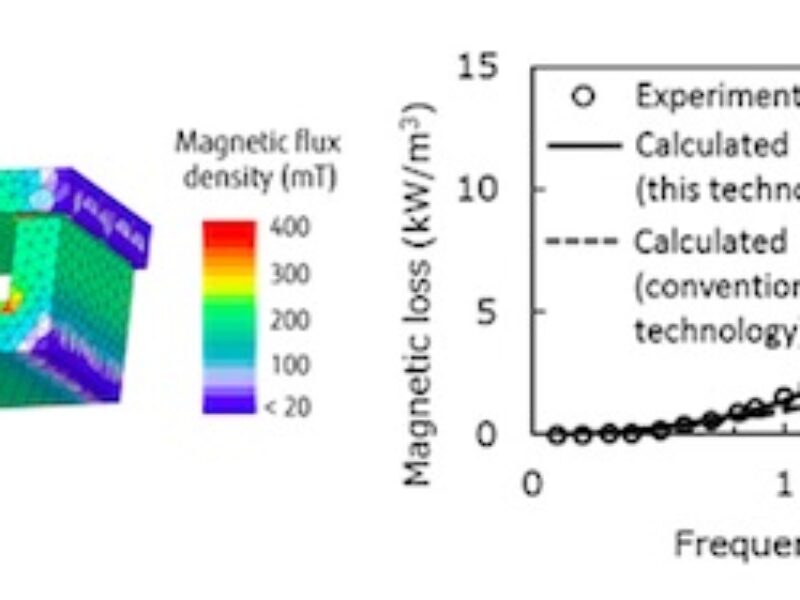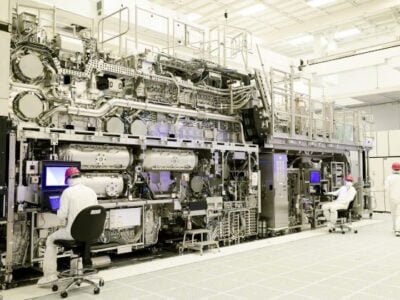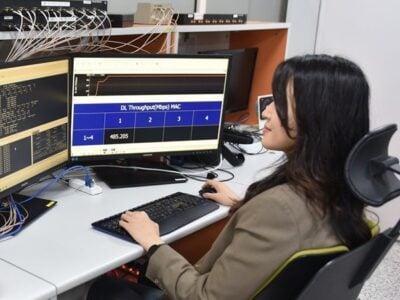
Fujitsu leverages AI to automate magnetics optimization
While in the past, developers had to rely on costly trial and error design iterations to attain efficient magnetics for power electronics and electric vehicle motors, the new technology automates and digitizes the development of prototypes, significantly improving R&D efficiency according to Fujitsu.
With existing design methods, the strong non-linearity unique to magnetic materials (magnetic hysteresis) make it is difficult to find an optimal geometry for minimizing magnetic loss, with simulated designs often yielding large errors in the magnetic loss simulation (several multiples or even several orders of magnitude from experimentally measured values), claims Fujitsu Laboratories.

(distribution of the density of magnetic flux within the
magnetic material); (Right) Comparison of experimental
and simulated results.
Here, through the use of AI, the distribution of eddy currents flowing through an inductor is accurately computed by formularizing the dielectric effects of the ferrite microstructures in the inductor, lowering the estimation error for magnetic loss under 10% across a broad range of operating frequencies, up to several megahertz. The newly developed AI-powered magnetic loss simulation is combined with a genetic algorithm that automatically finds the geometric parameters (dimensions for each part of the magnetic material’s shape) that minimize magnetic loss.
One generation to the next, the genetic algorithm fine tunes the geometry until magnetic losses are minimized while maintaining other desirable parameters above a certain threshold of excellence. One example would be to reduce both the physical size and the magnetic loss of an inductor while maintaining the inductance value to a certain level.
Using this technology, Fujitsu Laboratories and Fujitsu were able to automate the experimental design of magnetic material geometries in a virtual space, completing in a few days ferrite prototypes which would have normally taken several months to design, beginning with the creation of multiple types of moulds.
Making the new tools available through the HPC cloud for scientific calculations, the Japanese company aim to offer design services by 2020. Next, they plan to further leverage AI to support the creation of magnetic design geometries without specialized expertise by linking it with materials informatics.
Fujitsu Laboratories – www.fujitsu.com/jp/group/labs/en/
 If you enjoyed this article, you will like the following ones: don't miss them by subscribing to :
eeNews on Google News
If you enjoyed this article, you will like the following ones: don't miss them by subscribing to :
eeNews on Google News



